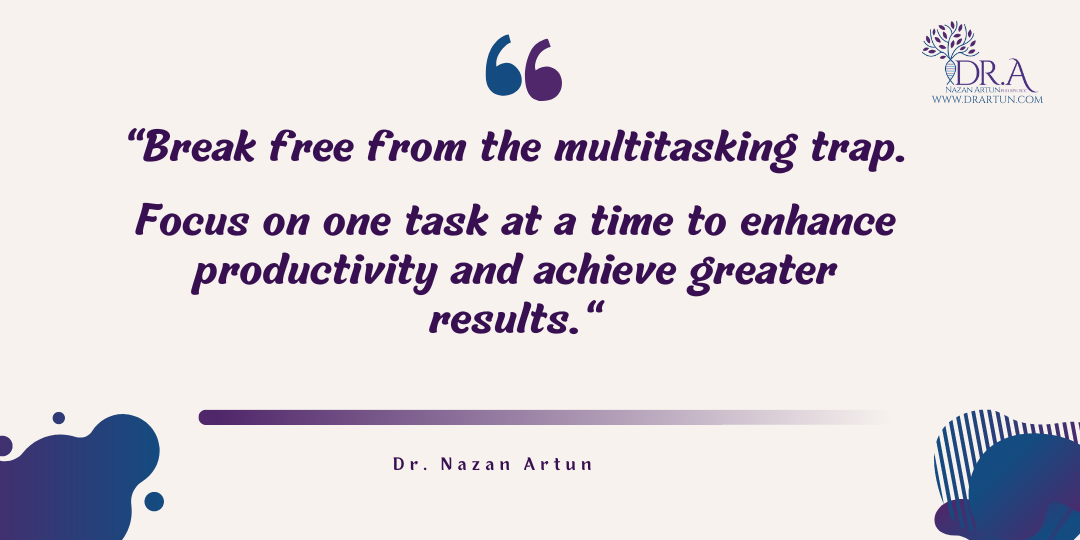|
I'm one of those who used to believe multitasking is synonymous with productivity and time management, especially in today's fast-paced and interconnected world. Though it may work with simple activities such as cooking while listening to your favorite podcast, it still means jumping from one activity to another. Ultimately, you end up spending more mental energy to complete the same amount of work but with less focus and presence.
Research and experience have shown that multitasking individuals perform significantly worse than those who work sequentially. Focusing on one task at a time can unlock our true potential, elevate our productivity, and achieve more remarkable results. Here's why adopting a single-tasking approach is the key to success: Heightened Focus When we concentrate on a single task, we channel our energy and attention towards it entirely. This deep focus allows us to tap into our creative problem-solving abilities, think critically, and produce higher-quality work. By eliminating distractions and immersing ourselves fully, we enter a state of flow where productivity thrives. Enhanced Efficiency Multitasking often leads to reduced efficiency. Constantly switching between tasks incurs a cognitive cost known as "task-switching overhead." The behavioral outcome of this processing is a slower and more error-prone performance when switching than when repeating tasks. In conclusion, this mental transition takes time and compromises our ability to perform at our best. On the other hand, when we dedicate our focus to one task until completion, we maintain momentum, avoid errors, and accomplish more in less time. Quality Over Quantity Quality over quantity holds true in the realm of productivity and achieving the best outcomes. By focusing on one task, we can allocate our time and energy effectively, ensuring we deliver our best work. This approach cultivates a reputation for excellence, boosting our credibility and opening doors to greater opportunities. Reduced Stress Multitasking often leads to overwhelming and increased stress levels. By embracing a single-tasking mindset, we can alleviate this burden and experience greater control and balance in our work life. Focusing on one task at a time can reduce stress and enhance our overall well-being. Consider these tips to break free from the multitasking habit:
0 Comments
Leave a Reply. |
ARTICLES
|


 RSS Feed
RSS Feed